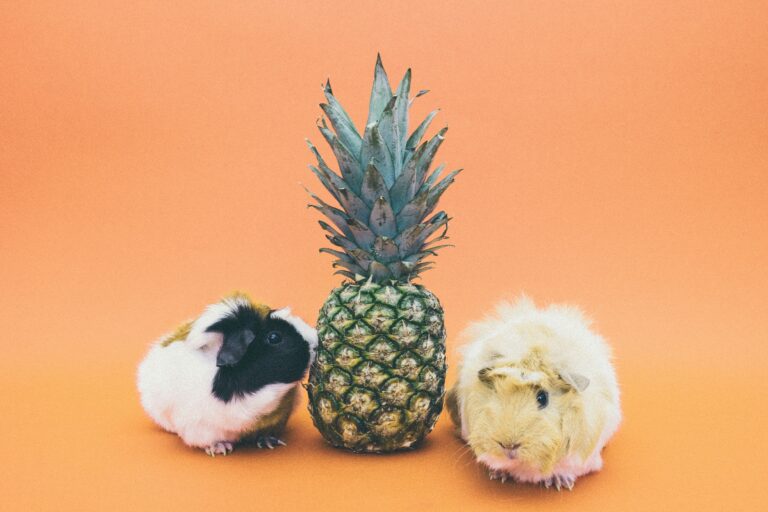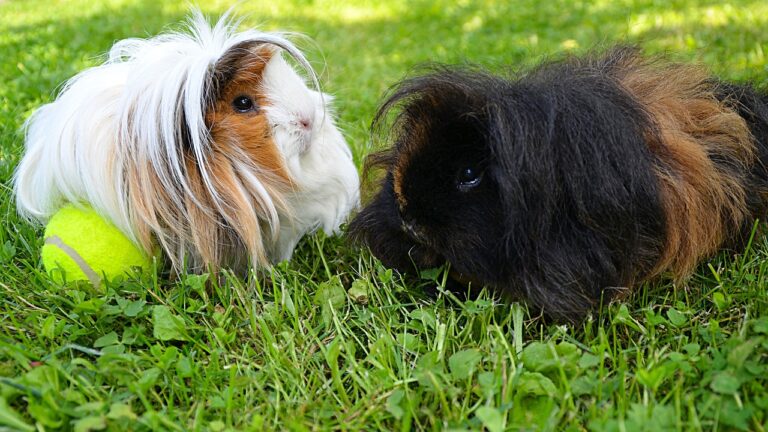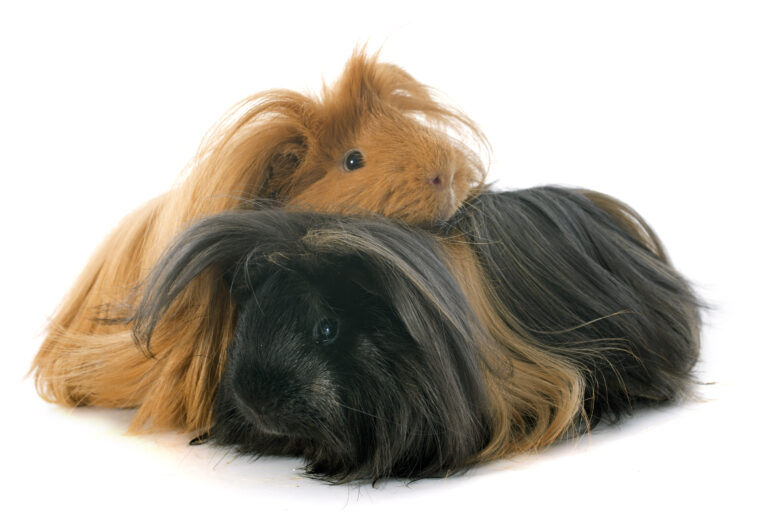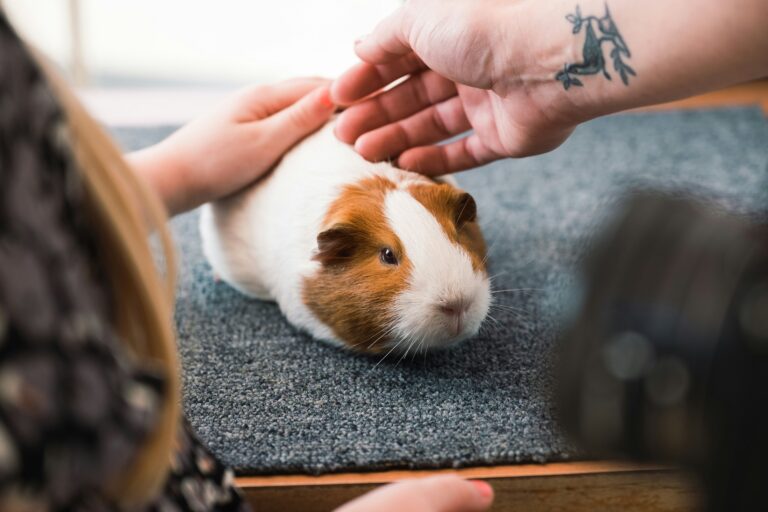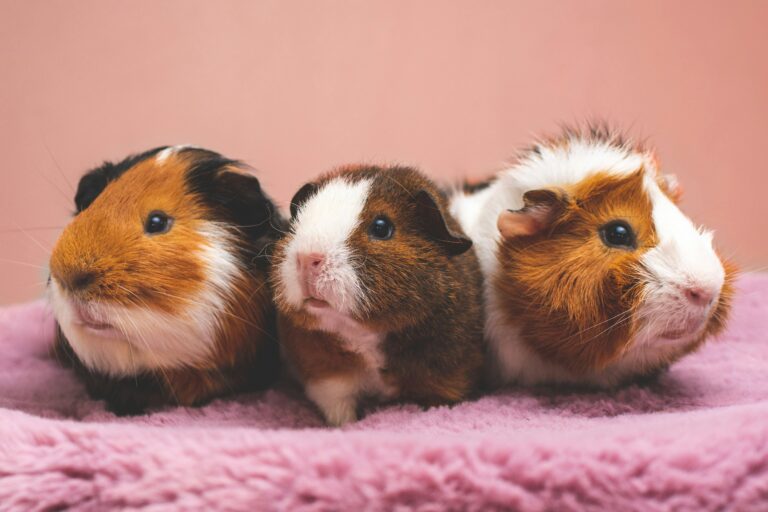Does my Guinea Pig need to go on a Diet?
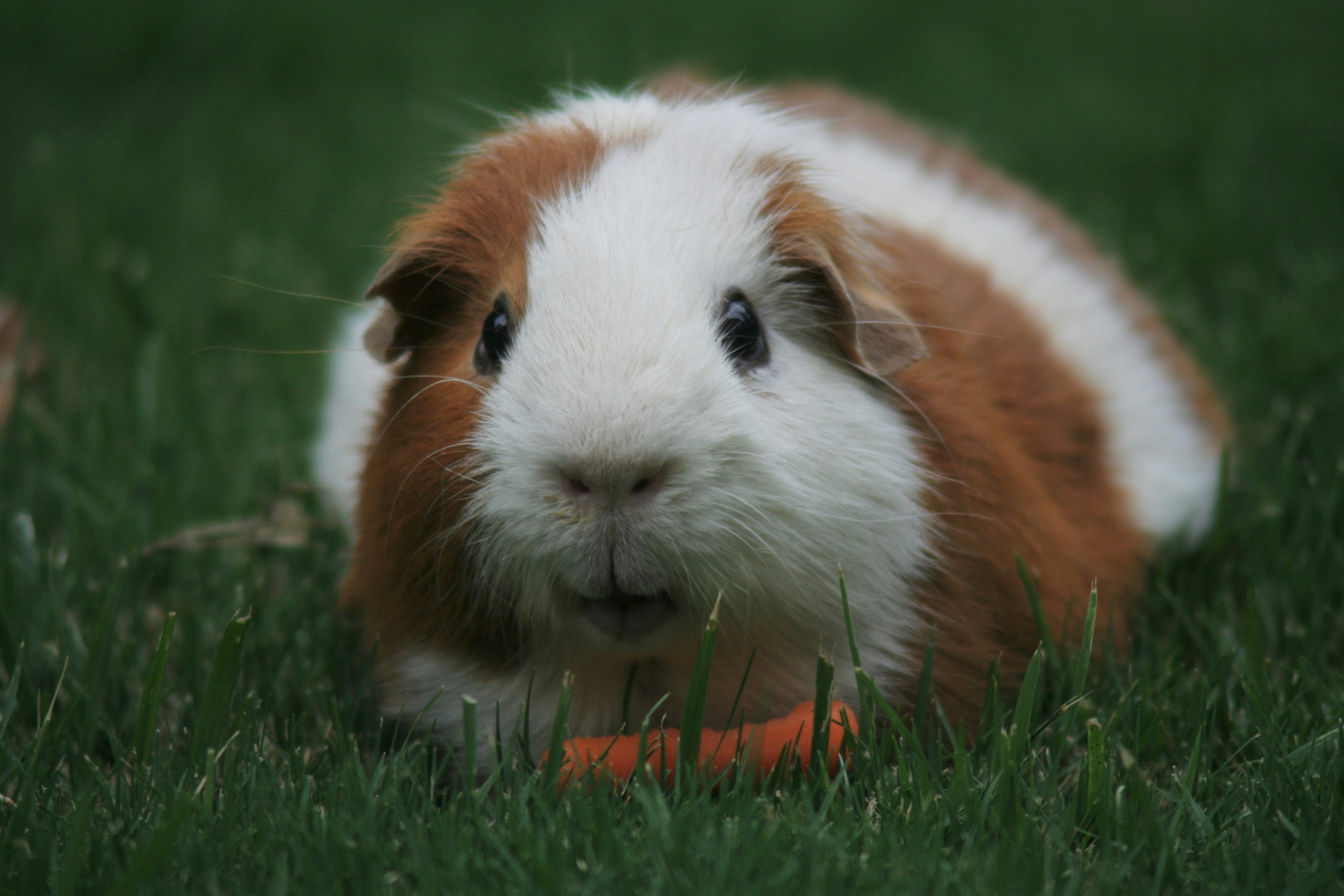
While guinea pigs are generally healthy pets, they can still face weight-related health issues if not properly cared for.
In this guide, we’ll explore how to tell if your guinea pig needs to go on a diet and offer tips on managing their weight effectively!
Understanding Guinea Pig Nutrition
Before delving into signs of obesity and diet management, it’s crucial to understand what constitutes a healthy diet for guinea pigs! Guinea pigs are herbivores, meaning they primarily eat plants. A balanced diet for a guinea pig includes:
Hay: High-quality hay should form the bulk of a guinea pig’s diet. Timothy hay is an excellent choice, providing essential fiber for digestion and wearing down their continuously growing teeth.
Pellets: Pellets formulated specifically for guinea pigs should supplement their hay intake. Look for pellets that are low in fat and high in fiber to support their digestive health.
Fresh Vegetables: Fresh vegetables like leafy greens (e.g., lettuce, kale, spinach), bell peppers, and cucumbers provide vital nutrients and hydration. Guinea pigs also love carrots, but because of their high sugar content, they should be fed only occasionally as treats. Introduce new vegetables gradually to prevent digestive upset!
Limited Fruit: While fruit can be a tasty treat for guinea pigs, it should be given sparingly due to its high sugar content. Small amounts of fruits like apples, strawberries, and blueberries can be offered occasionally.
Water: Fresh, clean water should always be available to guinea pigs to prevent dehydration.
Signs of an Overweight Guinea Pig
Obesity in guinea pigs can lead to various health problems, including heart disease, joint issues, and difficulty grooming themselves. Here are some signs that your guinea pig may be overweight:
Visible Weight Gain: Observe your guinea pig’s body shape regularly. An overweight guinea pig will have a rounder appearance, with excess fat around the abdomen and hips.
Difficulty Moving: Obesity can make it challenging for guinea pigs to move around comfortably. If you notice your pet struggling to walk or becoming lethargic, it may be a sign of excess weight.
Labored Breathing: Respiratory issues can arise in overweight guinea pigs due to the strain extra weight places on their respiratory system. Labored breathing or wheezing may indicate a weight problem.
Difficulty Grooming: Guinea pigs are meticulous groomers, but obesity can make it challenging for them to reach certain areas of their body. If you notice your pet struggling to groom themselves, it may be due to excess weight.
Joint Problems: Overweight guinea pigs are more prone to joint issues such as arthritis. Watch for signs of stiffness, reluctance to move, or limping, which may indicate joint pain.
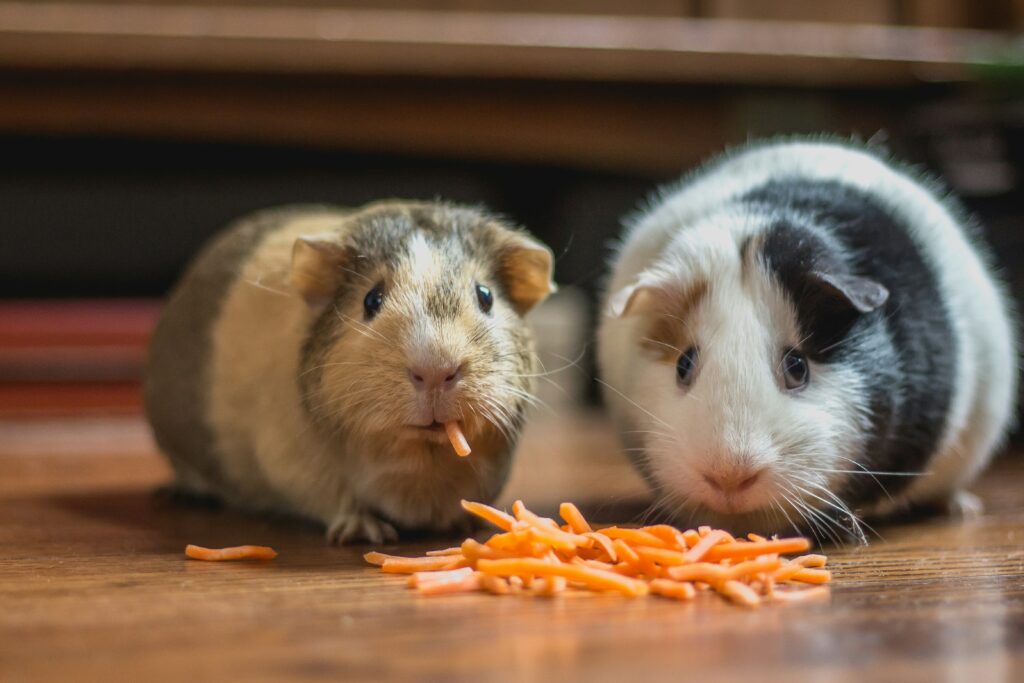
Managing Your Guinea Pig’s Weight
If you suspect that your guinea pig is overweight, it’s essential to take action to help them achieve a healthy weight. Here are some tips for managing your guinea pig’s weight effectively:
Consult a Veterinarian: Before making any changes to your guinea pig’s diet or exercise routine, consult with a veterinarian who has experience treating small animals. They can assess your guinea pig’s overall health and provide personalized recommendations.
Adjust the Diet: Review your guinea pig’s diet and make necessary adjustments to promote weight loss. Increase the amount of hay in their diet, reduce the number of pellets offered, and limit high-calorie treats like fruits.
Monitor Portion Sizes: Pay attention to portion sizes when feeding your guinea pig. While pellets are an essential part of their diet, offering too much can contribute to weight gain. Follow the recommended serving size based on your pet’s age, weight, and activity level.
Introduce More Exercise: Encourage physical activity by providing ample space for your guinea pig to move around. A large, well-equipped cage with tunnels, hideaways, and toys can encourage exploration and exercise. Additionally, allow supervised playtime outside of the cage in a safe, guinea pig-proofed area.
Enrichment Activities: Stimulate your guinea pig’s mind and body with enrichment activities like foraging for food or hiding treats in puzzle toys. Mental stimulation can help prevent boredom and overeating.
Monitor Progress: Keep track of your guinea pig’s weight and progress over time. Regular weigh-ins can help you gauge the effectiveness of your weight management efforts and make adjustments as needed.
Be Patient: Weight loss in guinea pigs should be gradual and steady to avoid putting undue stress on their bodies. Be patient and consistent in implementing dietary and lifestyle changes, and celebrate small victories along the way!
Preventing Obesity in Guinea Pigs
Prevention is key when it comes to managing weight issues in guinea pigs. By following these tips, you can help prevent obesity and promote a healthy lifestyle for your furry friend:
Provide a Balanced Diet: Offer a varied diet rich in hay, with an appropriate amount of fresh vegetables, and limited pellets and treats. Avoid overfeeding and monitor portion sizes to prevent excess calorie intake.
Encourage Exercise: Create an environment that promotes physical activity, with plenty of space to move and explore. Regular playtime outside of the cage can also help keep guinea pigs active and engaged.
Limit High-Calorie Treats: While it’s tempting to spoil your guinea pig with treats, moderation is key. Reserve high-calorie treats like fruit for special occasions and opt for healthier alternatives like fresh vegetables or hay-based treats.
Schedule Regular Vet Check-ups: Routine veterinary care is essential for monitoring your guinea pig’s overall health and identifying any potential weight-related issues early on. Schedule regular check-ups with a veterinarian familiar with small animal care.
Educate Yourself: Stay informed about proper guinea pig care and nutrition to ensure you’re providing the best possible care for your pet. Resources such as books, reputable websites, and veterinary professionals can offer valuable insights and guidance.
Conclusion
Maintaining a healthy weight is crucial for the well-being of your guinea pig! By being attentive to their diet, exercise routine, and overall health, you can help prevent obesity and ensure a happy, active life for your furry companion.
If you have concerns about your guinea pig’s weight or health, don’t hesitate to seek guidance from a veterinarian who can provide personalized advice and support.
With proper care and attention, you can help your guinea pig live a long, healthy, and fulfilling life!


